Youtube (featured videos)
Good news
- Raniero Cantalamessa
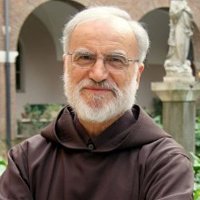 he Baptism in the Spirit's effectiveness in reactivating baptism consists in this: finally man contributes his part -- namely, he makes a choice of faith, prepared in repentance, that allows the that allows the work of God to set itself free and to emanate all its strength. It is as if the plug is pulled and the light is switched on. The gift of God is finally "untied" and the Spirit is allowed to flow like a ftragrance in the Christian life.
he Baptism in the Spirit's effectiveness in reactivating baptism consists in this: finally man contributes his part -- namely, he makes a choice of faith, prepared in repentance, that allows the that allows the work of God to set itself free and to emanate all its strength. It is as if the plug is pulled and the light is switched on. The gift of God is finally "untied" and the Spirit is allowed to flow like a ftragrance in the Christian life. - Peter Hocken
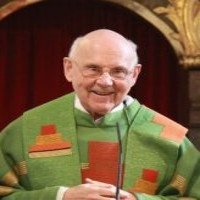 During the night between Friday and Saturday, in the early morning hours of 10 June 2017, the Lord called back to Him a great man, Father Peter Hocken.
He died at the age of almost 85. He was a servant of God, a friend, a priest who loyally served the Body of Christ until his last breath, all the world round. The Lord gave him an extraordinary intellect and wisdom, together with the experience of baptism in the Holy Spirit. He also received from God the talent and ability to provide specific and comprehensible theological explanations and descriptions of spiritual experiences that are taking place within the Church, notably after the Second Vatican Council.
During the night between Friday and Saturday, in the early morning hours of 10 June 2017, the Lord called back to Him a great man, Father Peter Hocken.
He died at the age of almost 85. He was a servant of God, a friend, a priest who loyally served the Body of Christ until his last breath, all the world round. The Lord gave him an extraordinary intellect and wisdom, together with the experience of baptism in the Holy Spirit. He also received from God the talent and ability to provide specific and comprehensible theological explanations and descriptions of spiritual experiences that are taking place within the Church, notably after the Second Vatican Council. - Dr. Martin Luther King Jr.
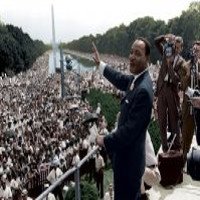 "I have a dream," he began, "that one day on the red hills of Georgia, sons of former slaves and sons of former slave-owners will be able to sit down together at the table of brotherhood. "I have a dream my four little children will one day live in a nation where they will not be judged by the color of their skin but by the content of their character."
"I have a dream," he began, "that one day on the red hills of Georgia, sons of former slaves and sons of former slave-owners will be able to sit down together at the table of brotherhood. "I have a dream my four little children will one day live in a nation where they will not be judged by the color of their skin but by the content of their character." - Peter Dufka SJ
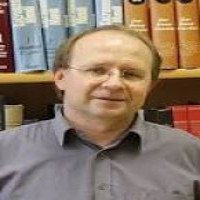 We all know, based on our personal experience, that the cooperation with most intelligent people is not often easy. These people usually do not establish friendship easily. It is interesting also that university graduates with an honour degree usually do not fit in to the working environment in the best way and that their high intellect is of a little help in overcoming personal or marriage crises.
We all know, based on our personal experience, that the cooperation with most intelligent people is not often easy. These people usually do not establish friendship easily. It is interesting also that university graduates with an honour degree usually do not fit in to the working environment in the best way and that their high intellect is of a little help in overcoming personal or marriage crises. - Marek Nikolov
 The aim of the “Jesus Heals” prayer gatherings is experiencing the fact that God is Love. He is Love that wants to give itself to other people. God wants to show us His mercy even through healing, signs, wonders, and miracles.
The aim of the “Jesus Heals” prayer gatherings is experiencing the fact that God is Love. He is Love that wants to give itself to other people. God wants to show us His mercy even through healing, signs, wonders, and miracles.
Video
Prorocká výzva Geoffa Poultera pre Slovensko, ktorá sa začína napĺňať.
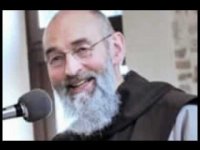 Zaujímavá a výpovedná skúsenosť západoeurópskeho muža s hinduizmom, budhizmom, jógou, ezoterikou a okultizmom.
Zaujímavá a výpovedná skúsenosť západoeurópskeho muža s hinduizmom, budhizmom, jógou, ezoterikou a okultizmom.
 Príbeh bývalého teroristu, ktorý dnes spája etniká a kmene.
Príbeh bývalého teroristu, ktorý dnes spája etniká a kmene.
Stephen Lungu
 Hudobníčka Lacey Sturm, bývalá speváčka kapely Flyleaf, bola presvedčenou ateistkou a mala v úmysle vziať si život... ale zrazu sa všetko zmenilo.
Hudobníčka Lacey Sturm, bývalá speváčka kapely Flyleaf, bola presvedčenou ateistkou a mala v úmysle vziať si život... ale zrazu sa všetko zmenilo.
We all are part of a great story. The great story of the world is composed of past and present stories of lives of individual people. The portal mojpribeh.sk is focused on the most important moment of the story of the world and individual, the moment of personal experience of person with God.
Message - Fr Peter Hocken
The People of the Covenant
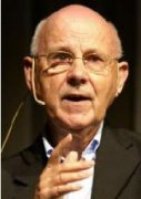
Fr Peter Hocken, a member of the new International Theological Commission for the Catholic Charismatic Renewal, reflects on the implications of the Catholic Church’s recognition of the special on-going convenantal relationship between God and the Jewish people and the recent phenomena of Messianic Jews and Hebrew Catholics
One of the most remarkable changes in Catholic teaching and attitudes resulting from the Second Vatican Council concerns the Jewish people. For the first time the Catholic Church gave an authoritative teaching on this subject. The teaching corrects the exegesis and thinking that had shaped Catholic attitudes to the Jews throughout the ages. Since the Council, the Vatican Commission for Religious Relations with the Jews has issued three further documents: Guidelines on Religious Relations with the Jews (1974); Notes on the Correct Way to present the Jews and Judaism in Preaching and Catechesis in the Roman Catholic Church (1985) and We Remember (1998), a reflection on the Holocaust. In this first article, I will first summarise the teaching of the Council, noting how this has been developed by the Catechism of the Catholic Church and Pope John Paul II. Where the Catechism and the Pope add to the Council's teaching, these points are mentioned subsequently.
The Teaching of Vatican Two
The teaching of the Council on the Jewish people is found in para. 4 of the Decree on Non-Christian Religions, Nostra Aetate (1965).
1. "The beginning of the Church's faith and election is to be found in the patriarchs, Moses and the prophets." (NA, 4). The Pope developed this thought when he made history by visiting the synagogue of Rome: "The Jewish religion is not "extrinsic" to us, but in a certain way is "intrinsic" to our own religion. With Judaism, therefore, we have a relationship which we do not have with any other religion. You are our dearly beloved brothers and, in a certain way, it could be said that you are our elder brothers." The Catechism expresses this succinctly: "When she delves into her own mystery, the Church … discovers her link with the Jewish People" (CCC, para. 839).
2. God has not rejected the Jewish people, and they remain God's chosen covenant people: "the Jews remain very dear to God, for the sake of the patriarchs, since God does not take back the gifts he bestowed or the choice he made.1" (NA, 4).
3. "Neither all Jews indiscriminately at that time, nor Jews today, can be charged with the crimes committed during [Jesus's] passion" (NA, 4)2. "… the Jews should not be spoken of as rejected or accursed as if this followed from Holy Scripture." (NA, 4). The 1985 Vatican document states: "We must in any case rid ourselves of the traditional idea of a people punished, preserved as a living argument for Christian apologetic. It remains a chosen people". "Christians and Jews have "a common spiritual heritage" (NA, 4). Thus the proper mode for relationship to further "their mutual understanding and appreciation" is dialogue (NA, 4). 5. "The Church deplores all hatreds, persecutions, displays of anti-semitism leveled at any time or from any source against the Jews." (NA, 4). On the contrary, there is to be a deep Christian respect for the Jewish people.
The Catechism
The new Catechism of the Catholic Church, issued in 1994, reflects an exegesis of Scripture that recognises in a new way the Jewishness of Jesus and the first generation in the Church. Under "Jesus' temptations", we find: "Jesus fulfi ls Israel's vocation perfectly: in contrast to those who had once provoked God during forty years in the desert, Christ reveals himself as God's Servant, totally obedient to the divine will." (para. 539).An important addition in the Catechism concerns the role of the Jews in the climax of salvation history. Under the striking heading, "The glorious advent of Christ, the hope of Israel", we read: "The glorious Messiah's coming is suspended at every moment of history until his recognition by 'all Israel,' for 'a hardening has come upon part of Israel in their 'unbelief' towards Jesus. … The 'full inclusion' of the Jews in the Messiah's salvation, in the wake of 'the full number of the Gentiles,' will enable the People of God to achieve 'the measure of the stature of the fulness of Christ,'" (CCC, para. 674). The Catechism notes in relation to our shared hope: "God's People of the Old Covenant and the new People of God tend towards similar goals: expectation of the coming (or the return) of the Messiah." para. 840).
John Paul II
Pope John Paul II has given his full encouragement to this new openness towards the Jewish people. But maybe the Pope's most distinctive contribution is his call for Catholics to repent for the sins of the past. This appeal was fi rst made in the Apostolic Letter Tertio Millennio Adveniente (1994), repeated in the encyclical on ecumenism, Ut Unum Sint (1995). While these documents did not specifically mention the Jewish issue, it seems that this question has impelled the Holy Father towards the call for repentance. Thus, as part of the Church's preparations for the Great Jubilee of the Year 2000 the Pope set up two commissions to study the Catholic treatment of the Jewish people through the ages and the Spanish Inquisition. The liturgy of repentance in St Peter's Basilica on 12th March, 2000, included this prayer: "God of our fathers, you chose Abraham and his descendants to bring your Name to the nations: we are deeply saddened by the behavior of those who in the course of history have caused these children of yours to suffer, and asking your forgiveness we wish to commit ourselves to genuine brotherhood with the people of the Covenant." Two weeks later in Jerusalem, the Holy Father followed Jewish custom by placing this prayer in a crevice of the Western (wailing) wall. This gesture more than anything else symbolised a revolutionary change opening the door to a different future. A further article will look at some of the implications.
Footnotes
1 A footnote refers to Rom. 11: 28 - 29. The CCC, para. 839, exlplicitly cites Rom. 11: 29. "for the gifts and the call of God are irrevocable". 2 See CCC, para. 597. The Catechism teaches that all sinners carry responsibility for the sufferings of Jesus (para. 598)
Story resource: Good NewsLatest
- Rhett Vorster
Personal experience with Christ - Paul Holliday
Seeking answers to the afterlife - Harriet Coombe
Something better than healing - Denis Chane Sing Guan
Hearts home - Milan Tószegi
I did not see it yet, but I believed in His Word.
Random
- Rémy Bale
I lived for drugs - Marcela Kernová
Maca - Kay Lyn Carlson
- PhDr. Henrieta Hrubá
Joshua’s generation - John Kazanjian
Total: 162 stories in this language.
There are 516 in all languages. To change the language please click on one of the flags.
Talks
- Geoff a Gina Poulter
 Geoff and Gina Poulter are active in healing ministry in Great Britain and in other European countries. They have zeal for building Lords kingdom. In Slovakia are already known mainly throwgh Jesus heals ministry where they were main speakers. They believe, that Lord comes with power, when we call him by His name and walk in faith. They are full of gentleness and kind behavior to people, which they serve with prayer for healing and prophetic giftings. Their ministry folows healings, sings and wonders.
Geoff and Gina Poulter are active in healing ministry in Great Britain and in other European countries. They have zeal for building Lords kingdom. In Slovakia are already known mainly throwgh Jesus heals ministry where they were main speakers. They believe, that Lord comes with power, when we call him by His name and walk in faith. They are full of gentleness and kind behavior to people, which they serve with prayer for healing and prophetic giftings. Their ministry folows healings, sings and wonders. - Petr Jašek
 As we know, faith is not a question of heritage. People must get their personal relation with the Lord Jesus Christ. This cannot be inherited. You have to be reborn in Jesus. In my life something similar happened.
As we know, faith is not a question of heritage. People must get their personal relation with the Lord Jesus Christ. This cannot be inherited. You have to be reborn in Jesus. In my life something similar happened. - Ján Volko
 I think Jesus plays a very important role. Faith in God helps me in difficult moments and also during competitions. I feel that God gives me His graces and blessing – and this is a huge support for me.
I think Jesus plays a very important role. Faith in God helps me in difficult moments and also during competitions. I feel that God gives me His graces and blessing – and this is a huge support for me.

